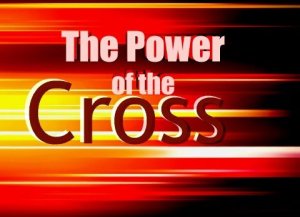Following Christ’s Example: A Biblical View of Discipleship

The Power of the Cross: The Biblical Place of Healing and Gift-Based Ministry in Proclaiming the Gospel
Following Christ’s Example: A Biblical View of Discipleship
by Don Williams
Jesus’ pattern for making disciples can show us how to live and minister today.
Is the Church both to bear Jesus’ kingdom message and exercise his kingdom ministry by casting out demons and healing the sick? The answer of some is an emphatic “no”! For them, the time of Christ and the apostles was unique. The claim has been made that “as the age of revelation came to a close, the signs ceased also”1 and that “Christians who pursue miraculous signs are setting themselves up for satanic deception.”2
Our answer to whether the Church should bear Jesus’ kingdom message and exercise his kingdom ministry is an emphatic “yes”! We will fail to see this responsibility if we fail to place the discipling work of Jesus in its historical context and read the Gospels accordingly. How then did people teach and learn in the ancient world? What did discipleship mean?
Teaching and Learning in Antiquity
In Israel and her surrounding milieu, learning was based on an intimate relationship between a teacher and his or her pupil. Lindblom notes, “In the Orient teachers have always gathered around themselves disciples … to receive their instruction and pass on their ideas.”3 Even the “writing prophets” of the Old Testament were no loners. Jeremiah had his secretary Baruch and his friends in court (Jer. 26:24; 36:4; 45:1). Isaiah instructs, “Bind up the testimony, seal the teaching among my disciples” (Isa. 8:16, RSV). There are two reasons for this intimate personal relationship between the teacher and his student. First, teaching was largely transmitted orally. Second, this teaching was to be lived out by being with the teacher and imitating his life.
“Miracles are part of the proclamation itself, quite as much as the spoken words of Jesus.”
— R. H. Fuller
Since learning takes place in personal relationship, Ben Sirach exhorts the prospective student to find a wise man: “Take your stand in the throng of elders: which of them is wise? Attach yourself to him” (6:34). He should hound him: “If you see a man of understanding, go to him early,/ And let your feet wear out his doorstep” (6:36). The Pharisees and their rabbinic leaders agreed. They were “Torah-centric” (Torah meaning “revelation” written and oral). Rabbi Hillel says, “More Torah, more life” (Aboth II.8). Rabbi Shammai advises, “Make thy Torah a fixed duty” (Aboth I.15) But how is this to be done? Johoshua ben Perahjah answers, “Make to thyself a teacher” (Aboth I.6).5
Since ancient culture was basically oral, the first vehicle of learning was the spoken word.6 Plato valued it over the written word because once speech was transcribed it had no life; it could not answer back (Phaedrus 275d). The French Old Testament scholar, Roland de Vaux, notes, “Most teaching … was done by word of mouth. The teacher told his story, gave explanations and asked questions; the pupil repeated the story and asked or answered questions. This method of teaching continued under the Rabbis. …”7 Ben Sirach exhorts his student: “Be willing to listen to every godly discourse,/ And do not let any wise proverb escape you” (6:35). Likewise the Pharisees stressed the importance of hearing Torah. Joezer of Zeredah says: “Let thy house be a place of meeting of the wise, and dust thyself with the dust of their feet and drink their words with thirst” (Aboth 1.4).
Since their tradition was oral before it was written, the Pharisees also valued memory. Johannan ben Zaccai (second half of the first century A.D.) sums up one of his disciples as “a plastered cistern that loseth not a drop” (Aboth 2.11). His input equaled his output. The nature of oral tradition demands this kind of receiver. The Pharisees of Jesus’ day mostly studied Torah by rote and quoted it from memory, preserving it with precision and accuracy.8
Category: Living the Faith, Summer 2007


